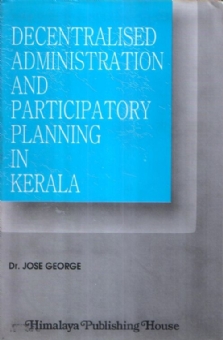The tussle between the forces who support centralisation of power and authority on the one hand and those who are for decentralisation of power and further democratisation of the society and government on the other is an unending one. It is our experience that the ruling classes go back when they find that the exploited classes are using the facilities afforded by the democratic system and would not hesitate to let loose a campaign against democracy and decentralization of power in the name of nation’s unity and integrity.
The countries of the world, especially the developing ones reverberated with the slogans of liberalization, privatisation, and globalisation at the instance of the World Bank and International Monitory Fund in the 1990s. India too was not an exception to this general trend. On the one hand we hear the story of finance capital ignoring the boundaries of nation state and really becoming international. On the other hand one can witness more and more movements for decentralisation of power and struggle for formation of smaller and struggle for formation of smaller states and districts. One can see this way trends of globalisation and localization existing side by side.
Ruling classes would use the concept of centralization in the centralization in the name of maintaining the integrity and unity of the nation and pretend to promote the idea of decentralization of power to keep the masses happy and create an impression that they are interested to involve them in running the show. The responsibility of those who are genuinely interested in the decentralization of power and clear the way for a radical twist in favour of the masses is to utilize this opportunity, however limited it may, in their favour. The opportunities provided through the decentralisation process though the three-tier structure of rural local government / the Panchayati Raj system and the efforts to further strengthening the same through the 73rd Constitutional Amendment in India was genuinely utilised by the Left parties. The Decentralised administration and participatory planning steps initiated by the planning steps initiated by the CPI(M) led Left Democratic Front in Kerala since 1996 is worth researching. This study is an effort to analyse the effort made by Kerala in the background of the post-independent decentralisation effort made in India and the recent experiment of decentralized administration and participatory planning in Kerala inaugurated through the people’s campaign for decentralized planning. This study reveals the prospects for such a mass campaign and the limitations for it. However, given the situation, that appears to be an important option to mobilise masses to build local resistance to the invading global financial capital’s efforts to bulldoze everything comes on their way. The present study throw some light into this unique effort given by Kerala, which many times stand our separately on account of its effort to challenge the capitalist system within. The case study of Valliknnu Panchayat in Malappuram district has revealed the revealed the genuine efforts shown by a Gramma Panchayat to improve their lot through decentralised administration and participatory planning.
Contents –
1. Introduction: Local Government, Concepts, Coverage and Methodology
2. History of Panchayati Raj Movements in India
3. History of Panchayati Raj Movements in Kerala
4. Mass Mobilisation for Developmental Work
5. Functioning of the Vallikunnu Panchayat: Analysis of the Survey Data
6. Development Administration and the Role of Political Leadership
7. Summary and Conclusions
Annexure – Questionnaire
Bibliography






